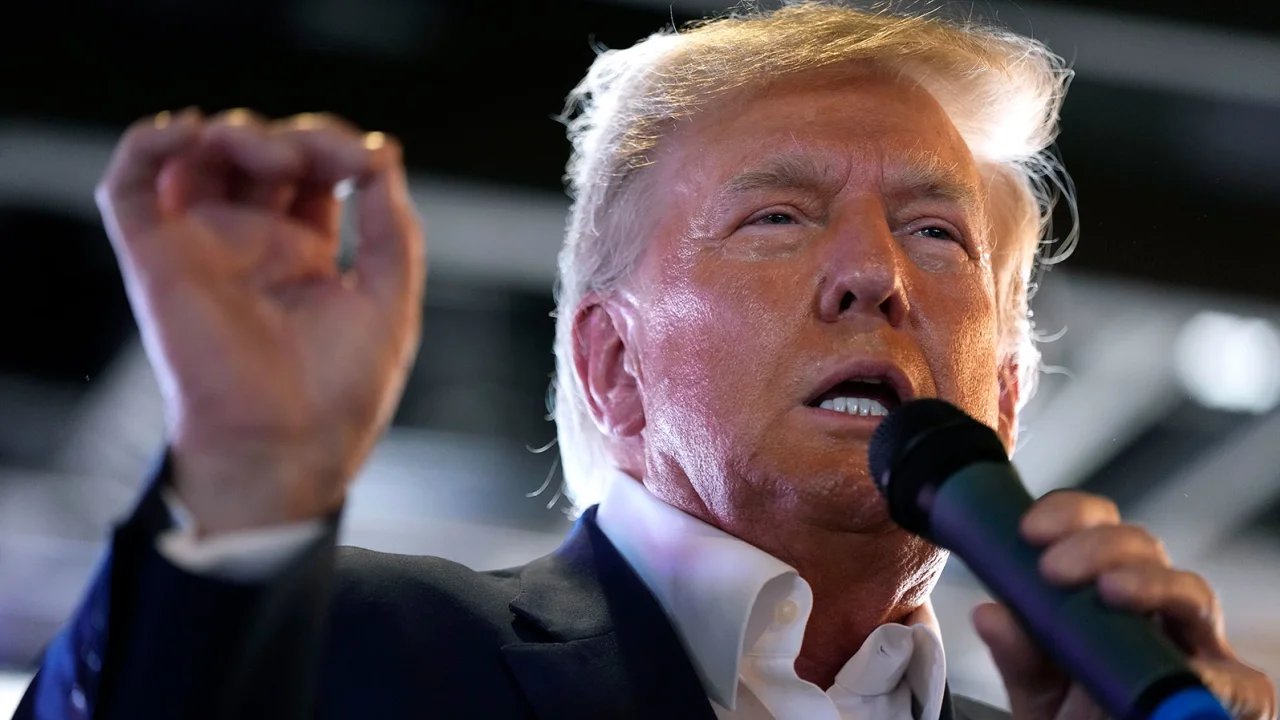A long-awaited and momentous judgement from the federal appeals court in Washington, DC, allows former president Donald Trump to be sued in civil claims pertaining to the US Capitol riot that occurred on January 6, 2021.
This ruling may greatly affect a number of Trump-related issues pending in federal court in Washington, DC, that pertain to the 2020 election. Legislative Democrats and Capitol Police personnel filed lawsuits, which led to this decision.
Chief Judge Sri Srinivasan writes in his ruling that the president’s statements and actions while in office are not immune to legal consequences.
Official duties do not occupy the president “domain responsibilities” throughout the day, according to the opinion. He loses his immunity when he accomplishes things that aren’t related to his job. He is just like any private individual when he acts in an unofficial, private capacity; he can be sued in civil court.
The three-judge panel of the DC Circuit Court of Appeals decided unanimously to grant the motion to proceed with the complaints filed against Trump on January 6. The decision was supported by Judge Greg Katsas, and Judge Judith Rogers partially agreed. If Trump so desires, he can still pursue further appeals over the matter.
However, three lawsuits involving Capitol Police officers and lawmakers seeking compensation for mental anguish and bodily harm caused by the assault can now proceed thanks to the decision, and another six or seven lawsuits against Trump could potentially come out of retirement as well. The majority of the claims are based on a statute that forbids groups of people from working together to disqualify an individual from serving in a federal official capacity.
Although Friday’s decision only affects to civil cases, it may influence how courts handle Trump’s arguments of immunity in his 2020 campaign-related federal criminal prosecution.
Democratic members of the House filed two of the lawsuits, and officers of the Capitol Police filed the third.
In their complaints, the lawmakers claim that Trump and others plotted to prevent the 2020 presidential election certification process from taking place on January 6, 2021, by threatening them. Trump, they say, should take the blame for ordering the attacks.
The DC District Court rejected Trump’s motion to dismiss the lawsuits against him on multiple grounds, including presidential immunity. The court ruled that the former president’s events leading up to the US Capitol riot were motivated by his desire to remain in office and not by official presidential duties.
Since Trump would have been exercising his official presidential powers at the time, the district court did rule that he was immune from claims that he failed to put an end to the violence.
On Friday, an appeals court judgement differentiated between official presidential activities and campaign speeches made by a president running for reelection.
While Trump maintained in court that his statements as president were free from legal consequences, the court rejected his claim and pointed out that the Trump event on January 6, which was held before the disturbance at the Capitol, may have been part of his campaign.
The cases will continue, and Trump can still challenge the facts. Before the January 6 lawsuits enter the intensive evidence-gathering phases, the appeals court ruled that Trump may also have more opportunities to argue about immunity.
“The court’s decision on Friday is flexible enough to accommodate rare cases where even speech made during a campaign event may be official,” Katsas said in his concurring opinion, echoing Friday’s ruling. “And it is careful, because it doesn’t exactly say anything about whether or not the First Amendment protects the [Trump January 6] speech at issue or not, or even if it does.”
According to the opinion, a president seeking a second term in office behaves “as office-seeker, not office-holder” during his campaign activities, such as attending private political fundraisers, hiring and firing campaign workers, and making political statements in ads and rallies for reelection.
On Friday, Trump reelection campaign spokesperson Steven Cheung criticised the ruling, describing it as “limited, narrow and procedural.”
The facts clearly demonstrate that President Trump was doing his obligations as the president of the United States on January 6, according to Cheung’s statement, which was released to AWN.
After a year of delay, the judgement was finally announced on Friday, much to the delight of the attorneys representing injured Capitol Police officers and Democratic members of Congress who were suing Trump.
Democratic Representative Eric Swalwell’s lawyer, Matt Kaiser, praised the outcome, calling it “the right result and an important step forward in holding former President Trump accountable for the insurrection on January 6.” Swalwell was one of the plaintiffs in the action.
According to attorney Patrick Malone, “Today’s ruling makes clear that those who endanger our democracy and the lives of those sworn to defend it will be held to account.” This comment was made following the release of the opinion on Friday. “Our customers are excited to take their cases to court.”
Kristy Parker, counsel at Protect Democracy, stated, “We’re moving one step closer to justice, one step closer to accountability, and one step closer to healing some of the wounds suffered by [Officers] James Blassingame and Sidney Hemby.” “This case demonstrates that former President Donald J. Trump is not immune from consequences for his efforts to undermine our democracy, according to our constitutional order.”
